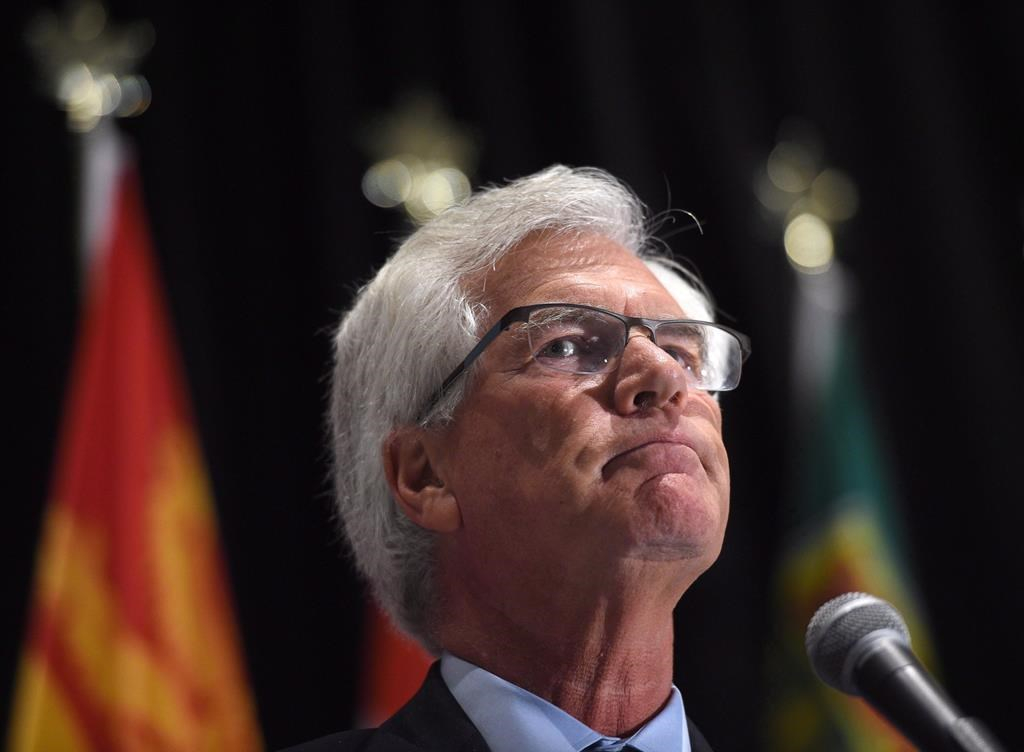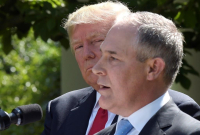Support strong Canadian climate journalism for 2025
Natural Resources Minister Jim Carr is adding cabinet weight to a lobbying effort against proposed U.S. budget cuts to the popular and effective Energy Star program.
If the U.S. goes ahead with a plan to slash the Energy Star budget by 40 per cent it could cripple the program and put at risk up to one-third of the emissions reductions Canada hopes to achieve from its national climate change action plan.
A series of documents released from a high-ranking official in Carr's department revealed that he and Environment Minister Catherine McKenna were involved in 'multi-pronged' lobbying efforts to save the plan, National Observer reported last month.
Those documents, released through access to information legislation, indicated that the Energy Star program was a "fundamental" component of the Trudeau government's climate change plan as well as a key part of energy efficiency programs deployed by provinces and territories across the country.
"It's a very important program for us and has been for some time," Carr told The Canadian Press Friday.
U.S. President Donald Trump threatened to eliminate the entire $50 million funding for Energy Star in his spring budget proposal, suggesting it is an area that could easily be privatized.
The House of Representatives, after months of lobbying, recently passed its budget bill, which proposes to cut the Energy Star budget by 40 per cent.
"While too early to speculate on whether the final U.S. budget will follow through on this, there would be significant impacts on Canada's ability to maintain the program without U.S. leadership," reads a Natural Resources Canada briefing note on the matter.
The department outline a lobbying plan to try and stop the cuts that included having Carr raise it with Scott Pruitt, head of the U.S. Environmental Protection Agency, on a June visit to Ottawa.
Pruitt's trip was cancelled and the discussion was never held. Now Carr plans to raise it when he meets U.S. Energy Secretary Rick Perry in Paris in November.
Natural Resources has identified Perry as one of the best hopes to help because his record as the governor of Texas included significant work on energy-efficient building codes and backing for wind energy development.
Since 1991 the EPA has run Energy Star to certify and label consumer products, new homes and commercial businesses based on their energy use. The familiar blue label tells people that the product or house is more efficient than products without the label and studies suggest homes and businesses with the label can be rented or sold at a premium.
Canada joined Energy Star in 2001, but its participation relies on an agreement with the EPA which owns the rights to the program. Canada will spend about $10.5 million to run its side of the program this year.
The U.S. has about 16,000 private partners who use Energy Star to label their products. There are about 2,000 such partners in Canada. But Energy Star is also the basis for almost all of the energy-efficiency programs run by the provinces, programs which are being looked at to cut nearly 30 million tonnes of carbon-equivalent emissions over the next 13 years as Canada tries to hit its Paris agreement commitments.
That amounts to one-third of the planned emissions under Canada's climate change framework and about 15 per cent of the total emissions Canada has to eliminate by 2030 to meet its Paris commitment.
Without Energy Star, Natural Resources officials fear those programs will collapse.
The Alliance to Save Energy, a U.S. partnership of private and public sector representatives, said the House of Representatives budget cut would be "debilitating."
"When you cut the budget of a program almost in half it's going to have some pretty devastating impacts," said alliance vice-president Ben Evans. "They will just not be able to do as much."
Evans said privatizing Energy Star is not a workable option because consumers aren't going to trust a certification if the program is funded by companies making money off the ratings.
Carr said the bottom line is Energy Star is "in the best interests of both countries" providing billions in savings to consumers on energy bills, cutting emissions and costing the governments just a small fraction in exchange.
The documents say every dollar invested by the public into Energy Star results in $600 worth of savings on energy bills.






Comments